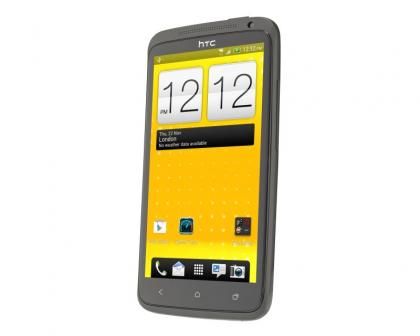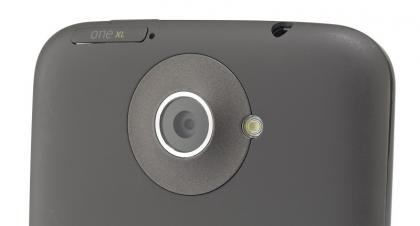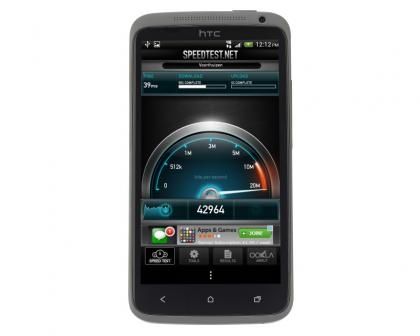We swooned at the original HTC One X when it was announced, with its super-sleek polycarbonate body and fantastic burst-mode camera. However, when we actually got to test it, it was undermined somewhat by poor battery life. Now we have the 4G-compatible HTC One XL, which although largely identical on the outside, it significantly different underneath.

The original One X used a quad-core Nvidia Tegra 3 chipset, or at least it did in the UK. The US model, where 4G was already available, used a dual-core Qualcomm MSM8960 Snapdragon chipset instead - as this supported LTE frequencies. Now that handset has been released in the UK under the HTC One XL name.
At first glance the move from quad-core to dual-core seems like a step backwards, but the Snapdragon uses Qualcomm's Krait CPU core which is more advanced than the Cortex A9 cores used in Tegra 3. This is borne out by a rapid SunSpider Javascript score of just 1,153ms, far quicker than Tegra 3 devices. The Quadrant benchmark suite backed this up with a score of 5,060 and 3D performance was also impressive with 22fps in the Egypt HD test.

Of course, most people won't be picking between this and the original HTC One X. Compared to its main Android rival on 4G, the Samsung was slightly faster in all the benchmarks when we last tested it, and may gain a small additional boost with its update to Android 4.1. The HTC One XL uses an identical chipset to the Windows Phone 8-powered Nokia Lumia 920, but that handset is faster at web browsing due to OS differences.
As this is a 4G handset it's not just the processor that's fast, but the internet connection too. We saw download and upload speeds in line with other 4G handsets - around 40Mbit/s down and 20Mbit/s up - though these are highly subjective of course. For more information on EE's 4G network read our EE 4G review .

One let-down is that this handset is still using Android 4.0.4, rather than the slicker Android 4.1 found on the Samsung Galaxy S3 LTE. This means the menus aren't quite as smooth and quick as we're now used to.

